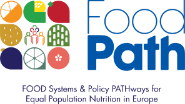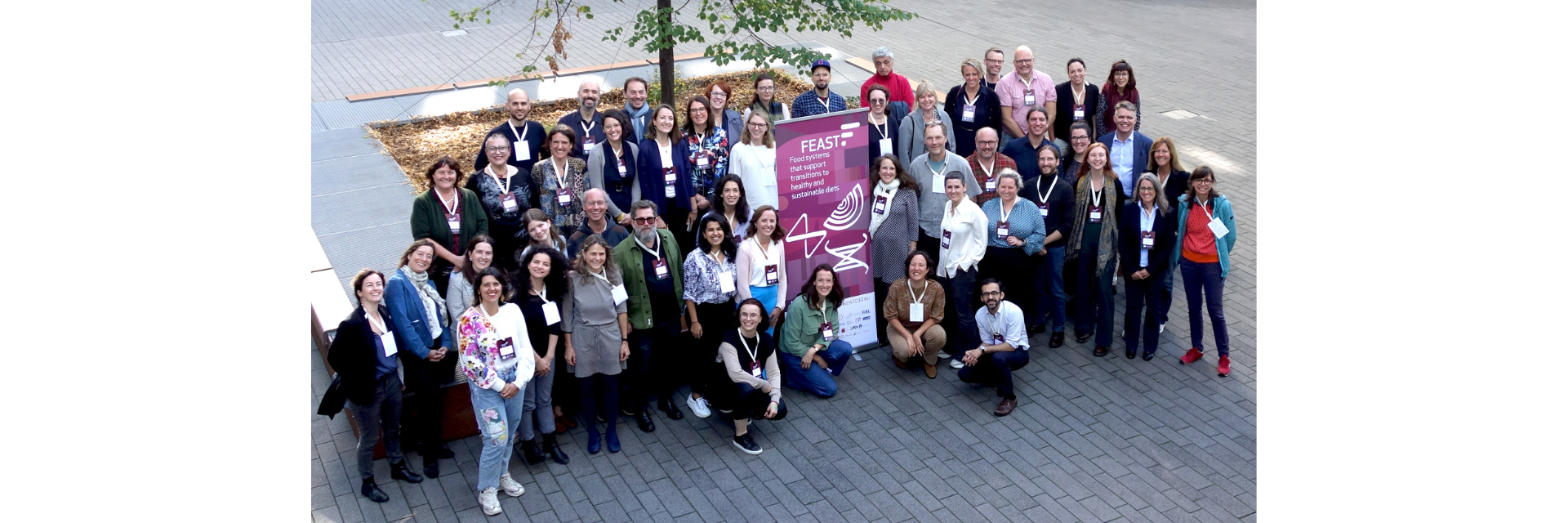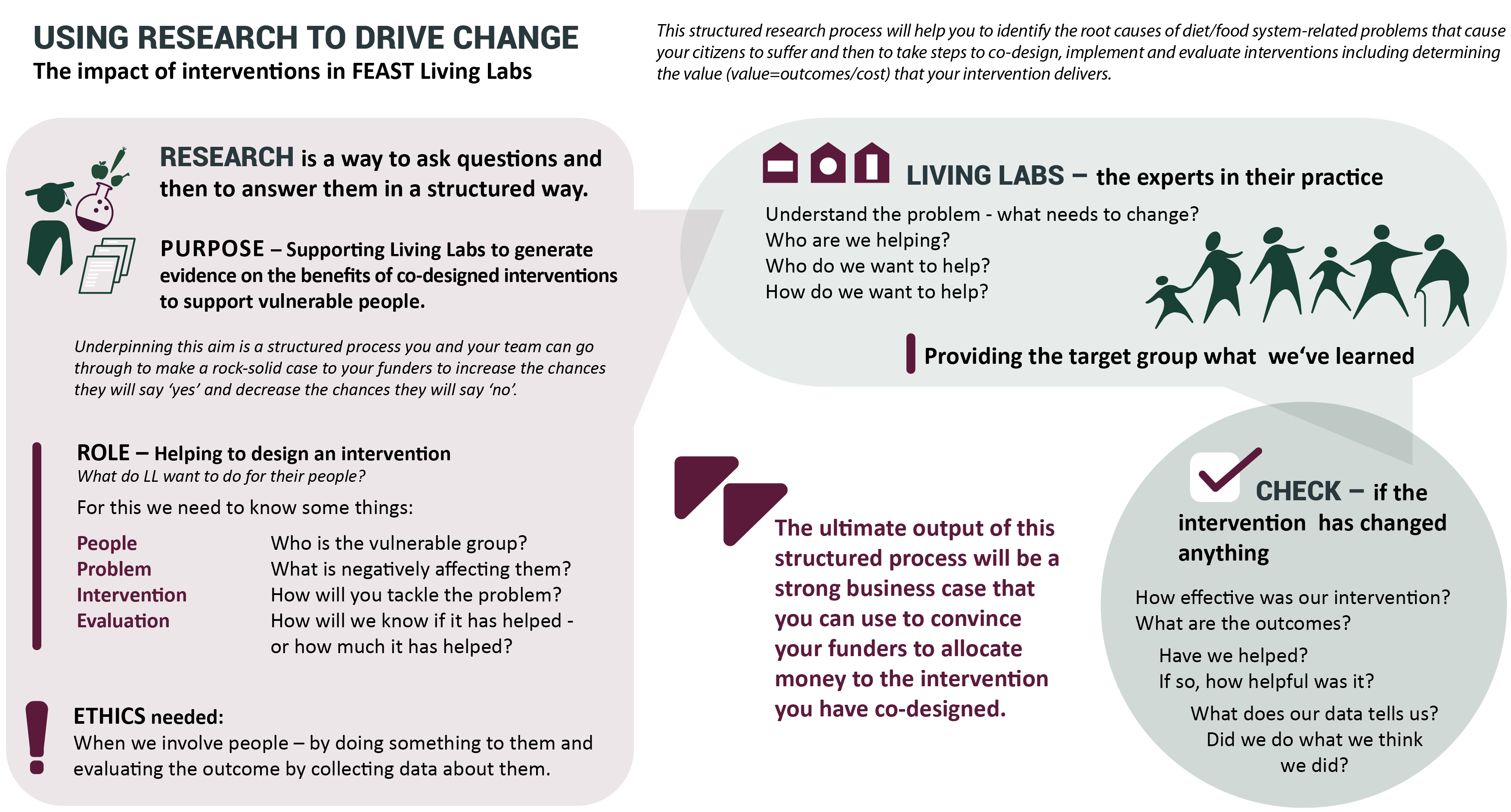A Horizon Europe funded project, FEAST aims to see every person in Europe eating a healthier and more sustainable diet. The consortium aims to achieve this goal by advancing the state of the art in research and innovation by bringing together different disciplines across the food system to co-create novel, practical and scalable community-based, technology-based and policy-based solutions.

FEAST is a large consortium of 35 partners, where nearly 200 people are involved directly or indirectly to share best practices, resolve challenges, and embrace success in the European food system.
Visit https://feast2030.eu/ to find out more.
Here at UCC, PI Janas Harrington and her team are working on FEAST Work Package 3 mapping and monitoring commercial and policy impact on the food environment here in Ireland.
FEAST operates 12 Living Labs (LL) in 11 European countries, collaborating closely with local stakeholders such as schools, kindergartens, senior residencies, and municipalities. The efforts of LLs enhance local food settings, spanning 3 million individuals through municipalities and an added 14 million individuals through associated large city living labs.
 Subscribe to our Newsletter here to get updates on our events, publications and more.
Subscribe to our Newsletter here to get updates on our events, publications and more.
Cork City is playing an important role in the project. We are currently mapping food policy stakeholders in Cork, in consultation with local government health representatives. The stakeholders will then help us to map food-related policies in the city. Our stakeholder and policy maps will form a template that other research and community groups can adapt and apply in their cities.
_______________________________________________________________
FOODPATH is a consortium of researchers from universities and research institutes in Belgium, Ireland, Italy, the Netherlands, Poland, and Türkiye.
Visit https://www.ucc.ie/en/foodpath/ to find out more.

Researchers have different backgrounds and expertise, but share a common interest in understanding why some communities and groups have access to healthy and sustainable diets, while others don’t.
UCC is coordinating the FOODPATH Consortium, managing all milestones and deliverables and is lead on Workpackage 3.
The team includes Dr Janas Harrington, Margaret Steel and Shannen Hussey.
HRB Centre for Health and Diet Research
For an overview of the HRB Centre for Health and Diet Research, please review the below PDF.
HRB Centre for Health & Diet Research overview
School of Public Health
Scoil na Sláinte Poiblí
Contact us
4th Floor, Western Gateway Building, Western Road,



